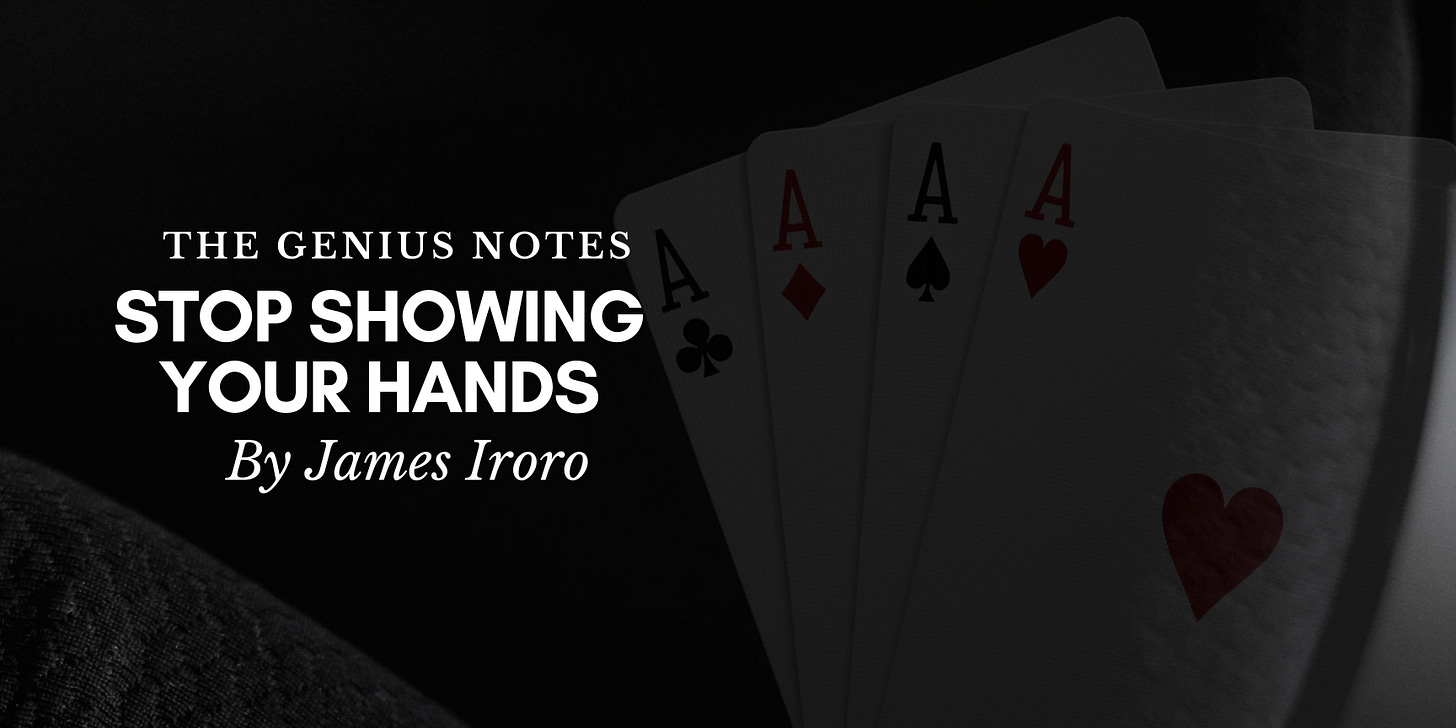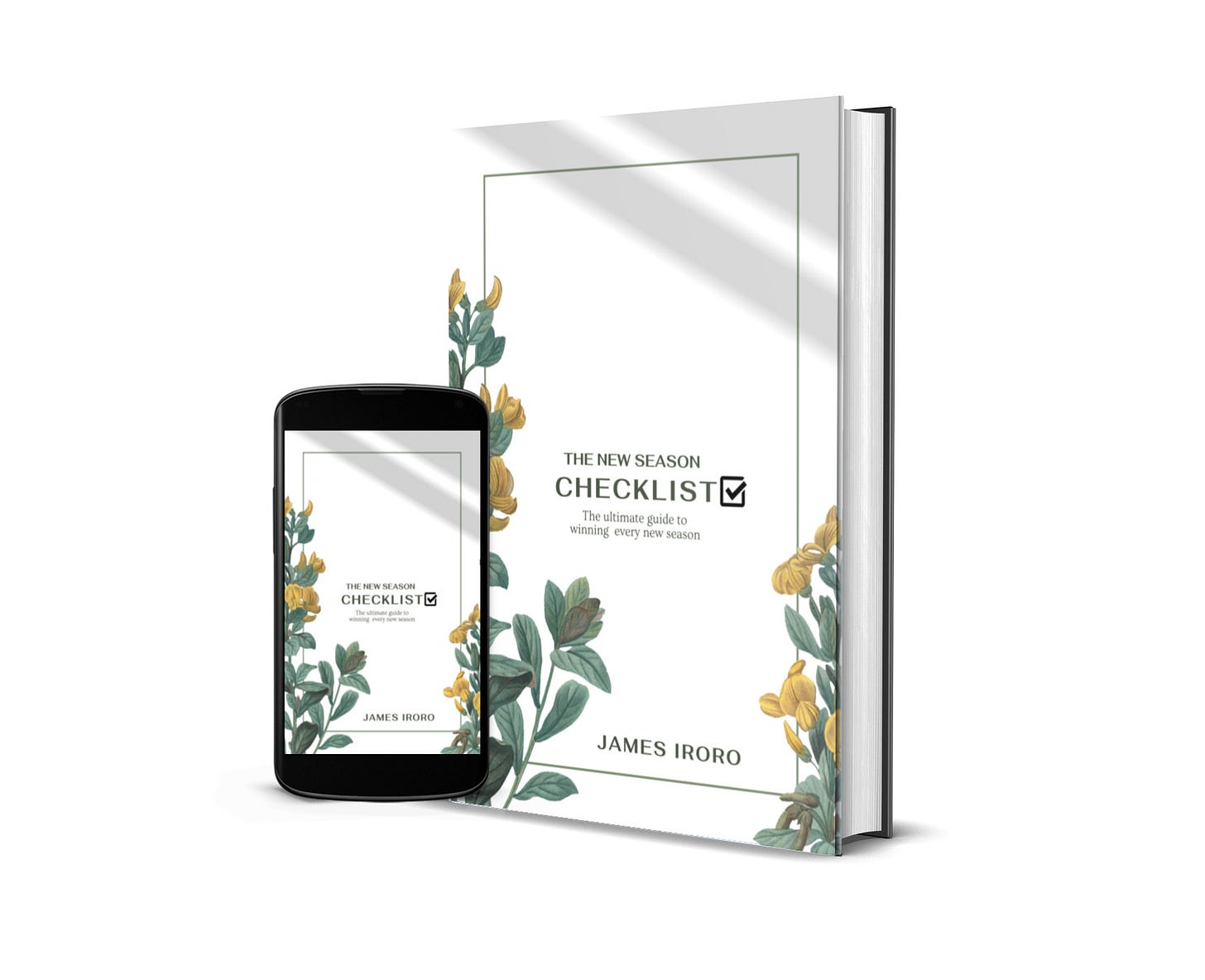Dear Genius,
When I started this newsletter, I had one goal in mind: to ignite the genius within young creatives like you—those who are tired of feeling stuck or held back.
We've all been there, standing at the crossroads of “What’s next?” and “Is this all there is?” But here’s the truth: you’re not alone and don’t have to stay stuck.
These letters are packed with hacks, insights, and practical tips to help you grow, push boundaries, and unlock your potential.
Today’s newsletter focuses on exercising restraint using the game of cards.
I have included resource material at the end of the letter to guide you this year.
This letter will take you about ~6 minutes to read, and you can check out the last article here.
Growing up in an era before the advent of the internet, what we considered fun might seem boring or even nonexistent to people of this modern era. In my opinion, true fun was derived before the internet changed everything.
Don’t get me wrong, I am immensely grateful for the internet and all it has brought us, including the ability for you to read this today. But there’s something irreplaceable about those simpler times.
I grew up in what can be termed a middle-class family. We didn’t have much, but we had enough to get by and retain a little extra. Fun for us was the quality time spent with family.
We didn’t own a generator like some of our neighbours, which meant that during blackouts, we resorted to games and stories until we fell asleep. Sometimes, the stories never even have an ending. Those were moments of pure joy—fun memories that shaped my childhood.
One particular activity stood out for me, though it was somewhat forbidden: playing cards. At the time, parents considered card games to be a gateway to gambling. In hindsight, they weren’t entirely wrong. But for us, it was just innocent fun. We had no intention of placing bets; we simply wanted to play.
Knowing what I know now, I understand their concerns. Some kids were exposed to other vices, and our parents, cautious yet subtle, would drop hints about what to avoid. They wanted us to figure out life without being overly sheltered.
The game of cards fascinated me. Let me paint a picture: we grew up in an apartment building with four floors and four flats on each floor. The stairways were our playgrounds.
Parents seldom allowed children to go downstairs unless it was a major holiday season. Admission to the "playground" was a social exercise. You had to be liked by the other kids. Reflecting on this, I realize how early social dynamics like cliques began to form.
In the evenings, after homework and chores, we gathered at the stairs to play. Some played soccer, others hide-and-seek, while the “big kids” played the forbidden card games. Admission into their group was limited, and as the youngest, I yearned to be part of it.
Eventually, I grew older and joined them. What stands out most vividly is one card game where, instead of gambling money, we bet on drinking a jug of water. Sounds harmless, right? Except I lost so badly that I almost passed out from water intoxication. It’s funny now, but back then, it was a lesson in consequences.
Being curious, I asked why I kept losing. After much prodding, a friend revealed, “You’re always showing your hands when you play. It’s easy to predict your moves.” That truth hit me hard because it was painfully accurate. It also planted the seed for a lesson that would stay with me for life: revealing too much makes you vulnerable.
This lesson resurfaced during another childhood pastime, magic tricks. My cousin was a pro at simple illusions. After much pleading, he taught me a trick, warning, “A magician never reveals his secrets.”
Despite his caution, I foolishly revealed the trick to the first person who asked. The magic was gone, and my cousin was furious. I learned another lesson: if you must show your hand, ensure the price is worth it.
As I reflect on these childhood memories, I see their relevance to personal development. Sometimes, we’re too eager to showcase our abilities or share our plans. While transparency is valuable, timing and discretion are equally important. Even the Bible offers profound lessons on this.
Consider the Transfiguration. Jesus took Peter, James, and John to witness a divine encounter on the mountain. His face shone like the sun, and His clothes became dazzling white.
Yet, as they descended, Jesus instructed them, “Don’t tell anyone what you have seen until the Son of Man has been raised from the dead.” Why the secrecy? Because timing matters. Jesus understood that revealing too much too soon could disrupt the plan.
Another example is Mary, the mother of Jesus. After the shepherds and prophets Simeon and Anna spoke of her son’s destiny, Mary “treasured all these things and pondered them in her heart.” For thirty years, she kept the truth of her son’s identity private, even from close relatives like John the Baptist. Her discretion was vital for the unfolding of Jesus’ mission.
The takeaways are clear:
Guard Your Plans: Not every idea or intention needs immediate exposure. Share only with trusted individuals who understand and support your vision.
Value Timing: Just as Jesus instructed His disciples to wait, learn to discern the right time to reveal your efforts or achievements.
Know Your Audience: Whether it’s a game of cards or life itself, be mindful of who’s watching and what they might do with the information you provide.
Treasure Your Journey: Like Mary, learn to treasure and reflect on your experiences. Not everything needs to be shared or explained.
Meandering the complexities of modern life requires wisdom, hence these lessons remain timeless. Whether you’re building a career, nurturing relationships, or pursuing personal growth, remember: that not every card needs to be shown.
Protect what matters, and reveal only what will advance your purpose.
Until I write to you again, don’t stop being a Genius!
James Iroro
The Genius Note
I hope this letter has inspired you in some way.
If you're ready to elevate your life to the next level, I invite you to explore my latest book, The New Season Checklist. In it, I’ve outlined eight key pillars that can unlock transformative change when applied.
When you engage with these pillars, you’ll lay the foundation for a life shift that aligns with your goals and dreams.
Don’t wait—get your copy now and step into the magic that awaits you on the other side.
Looking forward to seeing the new season unfolding in your life
If this message inspired you, don’t keep it to yourself!
📧 Share this newsletter with friends and family.
🔔 Subscribe for more uplifting content.




Wow!!! This post is profound. Thank you for writing this, I never saw the lessons in playing card games until now... Thank you 😊